Making Ends Meet
Cuba fought three wars for independence from Spain, a colonial power. Finally, with the help of the US, it gained independence in 1902. There followed a succession of Presidents, good and bad, with some really being dictators. Fulgencio Batista, who preceded Fidel Castro in power, was a former President who came back to power as a dictator. In the 1950’s he ran a country that had sold out to the American Mafia, and Cuba became a land of casinos, revelry, and mob influence. Many Cubans made a good living in those days, but those days have been gone for a long time in today’s Cuba.
Fidel Castro came to power on January 1, 1959, and he was welcomed by many, but not by the mobsters who ran the casinos. They were soon sent packing and the casinos closed down. Fidel got off to a rocky start that soon left him estranged with Americans (who owned 71% of Cuban businesses). After a series of nationalizations of US owned businesses, Cuba found itself an outcast in the western world. The only supporter Fidel could find was the Soviet Union.
Economically things went from bad to worse as the sugar industry (Cuba’s largest) steeply declined and a US embargo took hold. In a short time, “el comunismo” reigned in the “Pearl of the Antilles,” formerly the greatest colonial prize of Spain’s empire. Bad times prevailed, everyone pretended to work for the government, and the government pretended to pay them with shrinking pesos. Flash forward 50 years of struggle and you find the Cuba of today—where the average wage owner gets perhaps $20.00 a month and small rations of food staples. Nearly everyone cultivates a sideline to earn a little extra. The only exceptions are high political offices and those who run branches of foreign businesses in Cuba.
For Cuban companion animals this tight money problem is worse than it is for the people. Pets get leftovers to eat, or, if they’re lucky, slaughterhouse waste products (even chicken heads) cooked down with rice as a filler. Only the few rich can afford veterinary care unless they are connected with a moonlighting vet who might work evenings in his basement or garage. Yes, even professionals like veterinarians work a sideline for a little extra money. The average vet earns perhaps $250 a year in his government job. Surgery, when needed for dogs and cats is very rare, and the animals are expected to survive as best they can.
Jose, a veterinarian approaching retirement age, practices in Old Havana. To find his office, look in an empty lot walled off from the street with a rusted sheet metal fence. There’s a hole in the sheet metal, and if you duck down you can enter the yard. On one side, a concrete block lean-to like structure with a corrugated iron roof is Jose’s office. Inside are a few chairs, an old stainless steel table, a sterilizer, and a few shelves fixed to the walls. A few bottles of pills are on the shelves, and Jose shows me a cardboard box with vials of injectable meds he has scrounged from hospitals. They’re all out of date, but he rushes to tell me most still work. He even found medicines made for the Cuban campaign in Angola (in the ‘90’s) which still work as anesthesia.
Jose is a skilled vet with a good education (education still works well in Cuba), but with little support for supplies. But local people in his neighborhood love their pets and bring them to the shed to try to help them when they are sick. Jose is a regular at Aniplant’s weekend spay-neuter clinics as well. Cuban animals don’t have much going for them, but at least they have Jose.
Les Inglis
Friday, June 11, 2010
Subscribe to:
Post Comments (Atom)











































































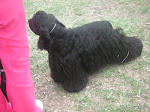
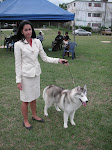


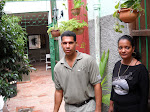





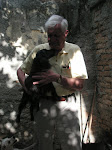





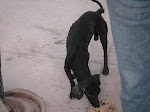


Keep 'em comin', Les. This blog was particularly interesting to me as I have always been concerned about the veterinarians in Cuba; especially, if there were enough and how they are paid. Jose sounds like a dedicated and compassionate vet, unlike some in the U.S. I am sad to say. Is there someway you might write a blog as to what supplies he (and others) might use and how they could reach him? Vets in the U.S. are bound to have some used/unneeded equipment/drugs which he could use. I am just not familiar with how these things could be shipped and if Aniplant could get them to his little "clinic."
ReplyDeleteJim
Jim,
ReplyDeleteGood idea. I'll talk about how we are getting some things into Cuba for vets in a near future blog. Cuban vets are a match for our own, as they have a good education, but, when it comes to helping dogs and cats, they get no support from the government.